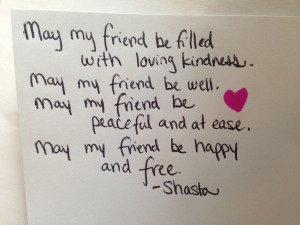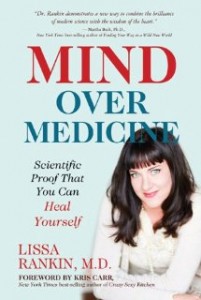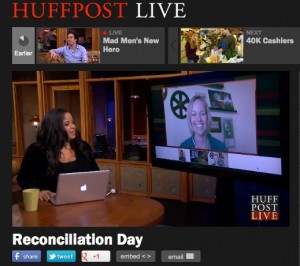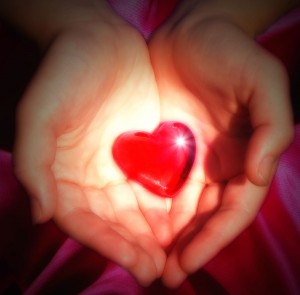Once a month, for the last three years, this group of amazing women has gathered together to share their lives, to practice cheering for each other, and to ask for help from the group. This last Monday was our May gathering. One of the women shared a situation with someone they were having a hard time with at work and she so wisely said, "I don't think I want advice for how to handle her because then I'll go into defensive mode trying to explain more about what I've tried or why that wouldn't work. I guess I just wanted to tell you and ask for your support." (What maturity to be able to articulate what she didn't need!)
We all thanked her for sharing, validated what we heard her say, and promised prayers and thoughts for her patience and wisdom. Then a wise sage in the group said, "Are you familiar with the Loving Kindness meditation? I just wonder if that would feel grounding for you?"
The sharer expressed interest and wanted to know more. So this practice was described for those who weren't familiar with it and I watched as everyone scrambled to write it down, oohed-and-ahhed at how meaningful it felt, and a few even vowed that they wanted to challenge themselves to try it for 30 days.
I knew right then what I wanted to blog about this week. :)
The Loving-Kindness Meditation
What it is: It struck me how powerful this mediation could be in our community of women who are striving to have healthy relationships with themselves and others. It's often referred to as metta, which in the Pali language refers to an inclusive, wise, and compassionate love. From a place of meditation, we are choosing to practice love in our minds, not based on whether others, or ourselves, "deserves" it, but because we recognize that love is more healing in this world than judgment, hatred, or fear.
The words: There are many variations-- feel free to google to find the phrases you like the best or even write you own. I love the adaption that my friend shared on Monday night so I'll share that one with you for now:
May I be filled with loving kindness. May I be well. May I be peaceful and at ease. May I be happy and free.
How it works: It works by offering loving-kindness to ourselves first, then extending out to people we love easily, then extending out to people we feel neutral about (or maybe people we don't even know), and eventually extending out to people who frustrate or disappoint us.
- So we want to find the time and place to sit comfortably in a quiet place and whisper the words slowly over and over about ourselves first.
- When we feel ready, we then can picture that love extending beyond ourselves to those we love with relative ease. For example, "May Lucy be filled with loving kindness..." We replace the I with either their names or we can say she or they if we're picturing different friends or our family in our minds. Continue doing this as different people you love pop into your mind.
- When we feel ready, we then picture that love extending out even more to the next circle of people-- whether that be people you work with, the people you have appointments with that day, anyone who pops into your mind, your neighbors, your family, etc.
- Then when you feel ready, invite yourself to think of people who trigger you-- people you're having a hard time forgiving, people who annoy you, people you're no longer friends with, and people who have hurt you.
- To end, I like to visualize my love as ribbons going out from my heart to surround the world. For one moment feel what it feels like to simply put love out there-- to everyone, to anyone. And pray that as you go about your day that you'd show up as as someone ready to see that everything said to you by others is either their love for you or their call to be loved. Hear it as a gift you can give to include that person in your circle of who you are willing to extend the loving-kindness meditation toward.
If it's hard to do: Quite naturally, sometimes these words are incredibly difficult to say about some people, possibly even ourselves. So it's important to be as compassionate and tender with yourself as possible when you feel constriction or panic. Try not to judge yourself-- it's like a muscle that needs to developed--most of us will struggle with judgments as we try to extend the words.
Some ideas when you don't feel the love:
- One idea is to start the prayer with something like "To the extent that I am able..." or "I don't feel it yet, but I am willing to say it..."
- Another practice some suggest is if you feel blocked then go back to saying it about someone with whom it's easy for you to feel it and say it several times for that person, then try--from that place of love-- to let some of it spill over as you return to the person that originally choked the words.
- Depending on your tradition, another option might be to say it about God's desire if you don't yet feel you can say it from yourself, such as "God wants you to be peaceful and at ease."
It's crucial to realize that you don't need to feel these words to have them do their work on us. In fact, that's kind of the point. We're slowly re-wiring our brain toward love so chances are slim that we already feel these things automatically. It will not feel easy or authentic. Keep in mind that we're not obligating ourselves to anything, letting anyone off any hooks, or justifying their behavior.
This meditation is more for us than it is for them.
We are practicing becoming more loving people and this is how we get there. We may not think we believe the words, but there is a voice in us, somewhere, that knows these words to be true. We are calling out to that voice and letting her be heard above the voices we all too often listen to.
We are choosing our peace over our defensiveness.
With so much big love for you,
Shasta
p.s. Do you practice this meditation? What's it been like for you? Share with us your tips or testimonies!




 comes out tomorrow, the timing couldn't be better!
comes out tomorrow, the timing couldn't be better!
 -- will help you assess your relationships so you can then decide which steps you most need to pour your time and energy into.
-- will help you assess your relationships so you can then decide which steps you most need to pour your time and energy into.

